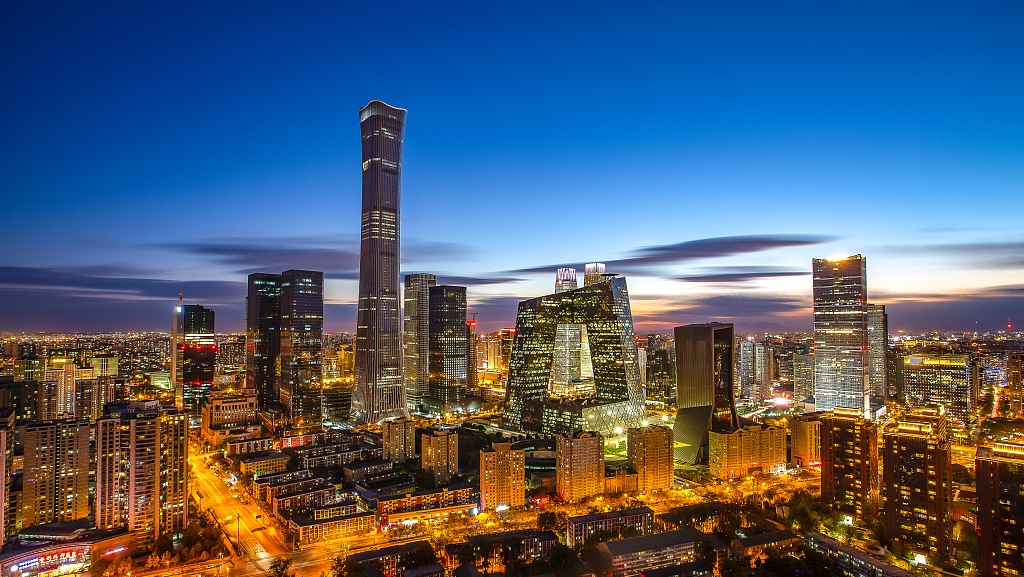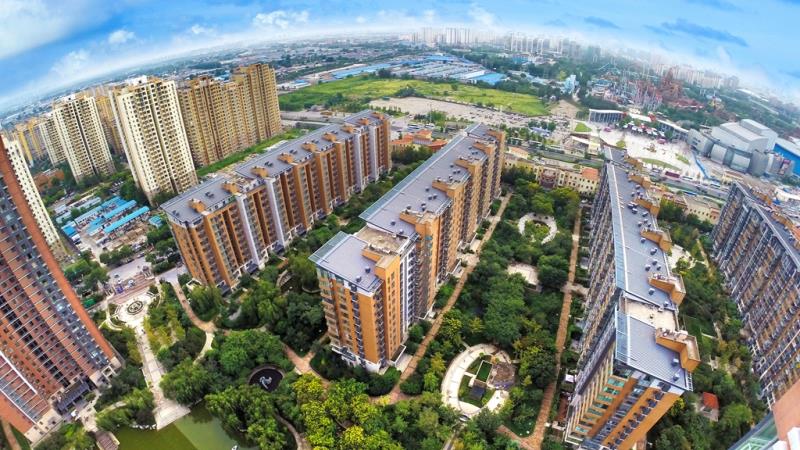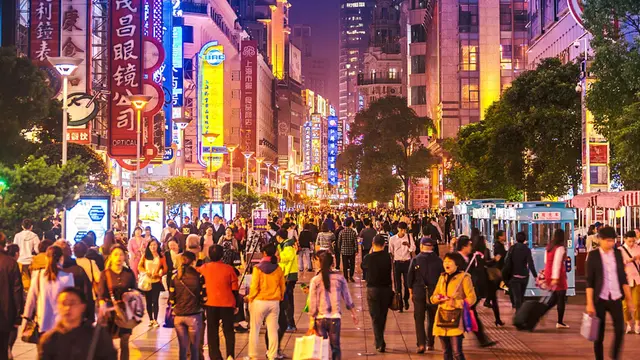China pledges to "boost consumption and expand investment in a mutually reinforcing way," Chinese Premier Li Keqiang said on Friday at the opening of the annual session of the National People's Congress, China's top legislature.
Promote the recovery of consumption

Shopping cart. /VCG
"We will promote the recovery of consumption… We will apply a combination of measures to boost consumption and meet diverse demand among consumers," Li said.
The country will support the recovery and development of the food and beverage sectors, brick and mortar shopping, culture, tourism, domestic services and other consumer services that have been hit hard by the COVID-19 epidemic.
It will also promote the integration of online and offline consumption and support the rollout of e-commerce and express delivery services in rural areas to expand rural consumption, Li said.
Expand effective investment

The Beijing skyline. /VCG
"We will expand effective investment … Priority will be given to new infrastructure and new urbanization initiatives and major projects," Li added.
About 3.75 trillion yuan (527 billion U.S. dollars) of special local government bonds will be issued, representing a 1.6 trillion yuan (225 billion U.S. dollars) increase over last year. Li noted that the central government budget includes 600 billion yuan (84 billion U.S. dollars) for investment.
Efforts will be made mainly in the construction of infrastructure, including developing next-generation information networks and expanding 5G applications, building more charging facilities, and promoting wider use of new-energy automobiles.
Meanwhile, the country will begin the renovation of 39,000 old urban residential communities, support the installation of elevators in residential buildings and the development of community services.
China will also redouble efforts to develop major transportation and water conservancy projects and increase national railway development capital by 100 billion yuan (14 billion U.S. dollars). It will improve market-based investment and financing mechanisms to support private enterprises in participating in projects on an equal footing.
"Acting on the principle that houses are for living in, not for speculation, we will implement city-specific policies to promote the steady and healthy development of the real estate market," Li stressed.

An aerial view of residential apartments in China. /VCG
Regional development strategies
The country will move forward with the coordinated development of the Beijing-Tianjin-Hebei region, the development of the Guangdong-Hong Kong-Macao Greater Bay Area and the integrated development of the Yangtze River Delta. Development of the Chengdu-Chongqing economic circle will be promoted as well, Li said.
Support Hubei's recovery
When it comes to Hubei, the province hit hardest by the coronavirus, Li assured that the central government "will implement a package of policies to support Hubei's development, ensuring employment, public well-being, and normal operations, spurring the full recovery of its economic and social activity."
China will also implement more effective measures to protect its ecosystems and environment, Li said. The country will safeguard energy security and develop the maritime economy.
 简体中文
简体中文





